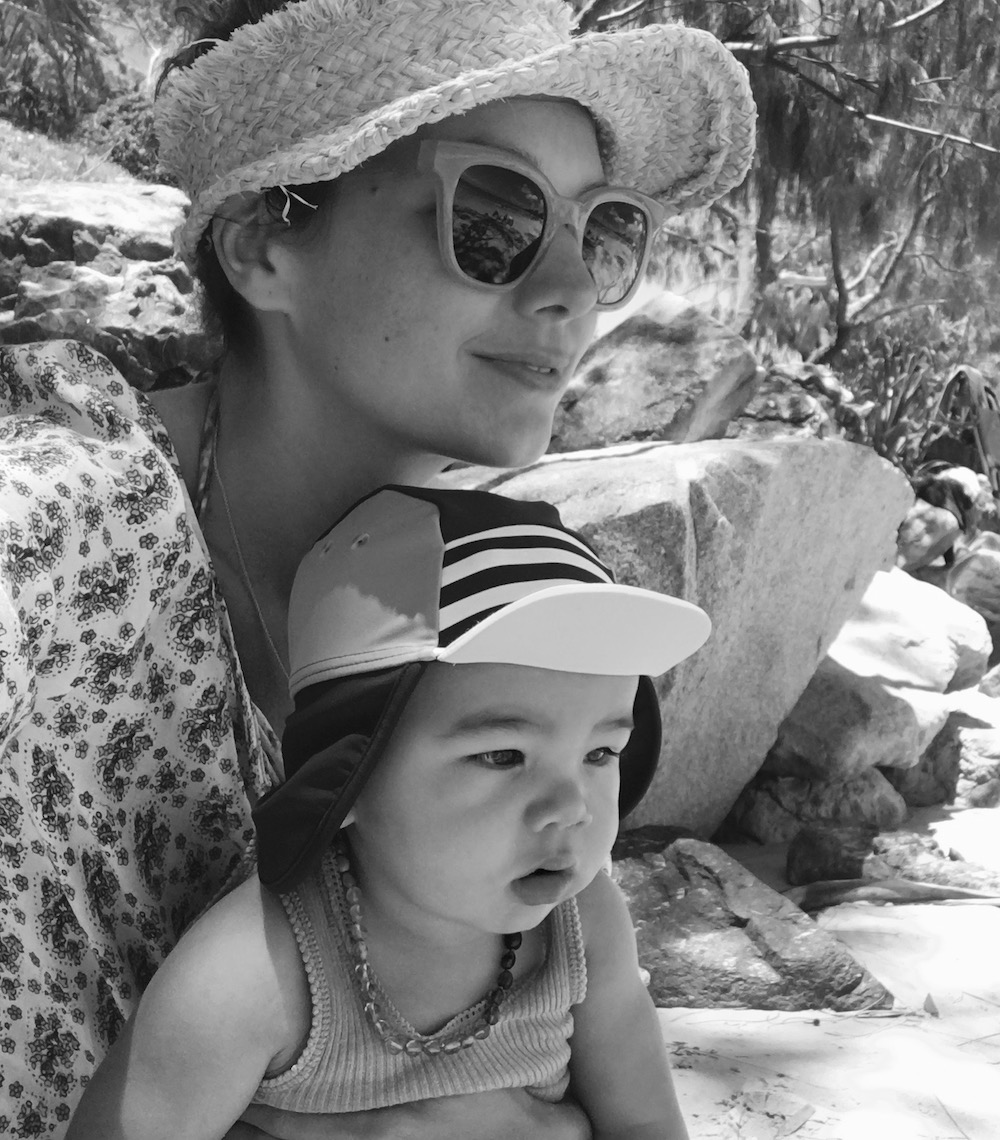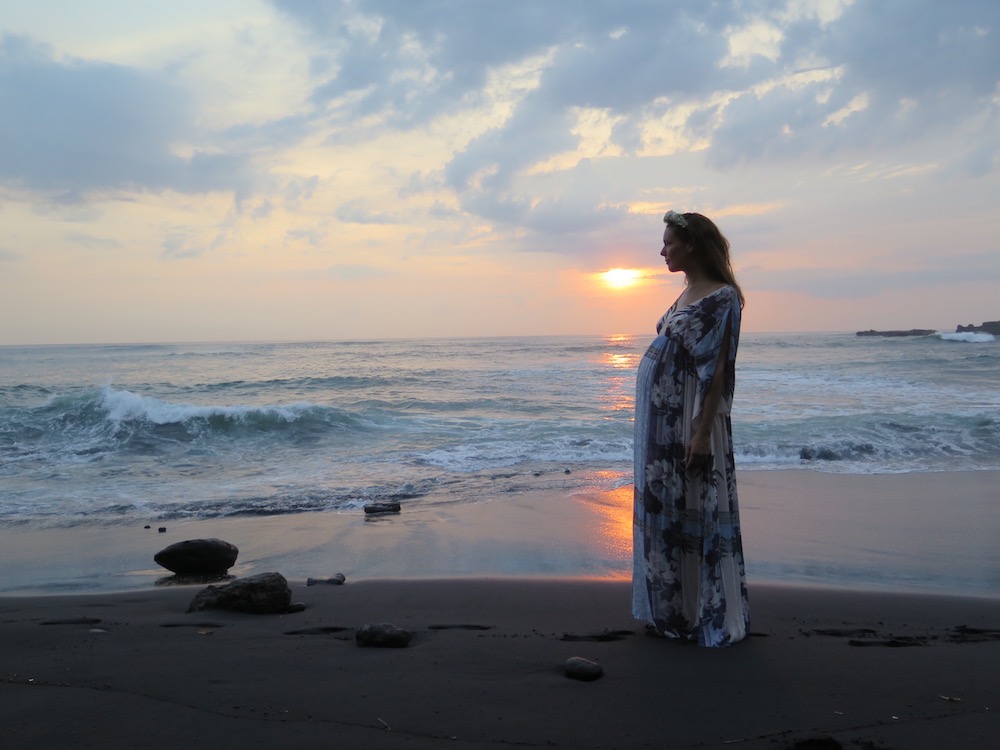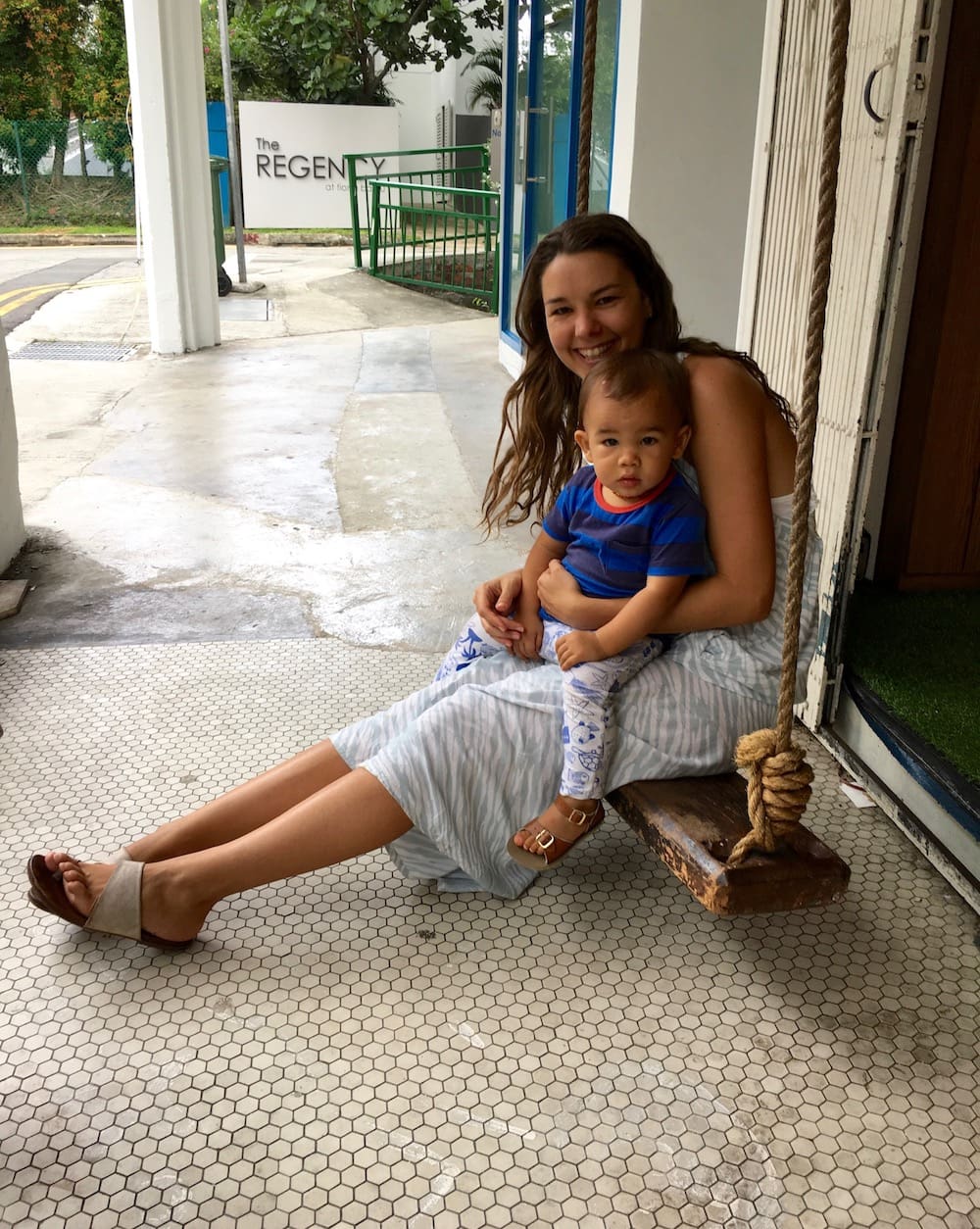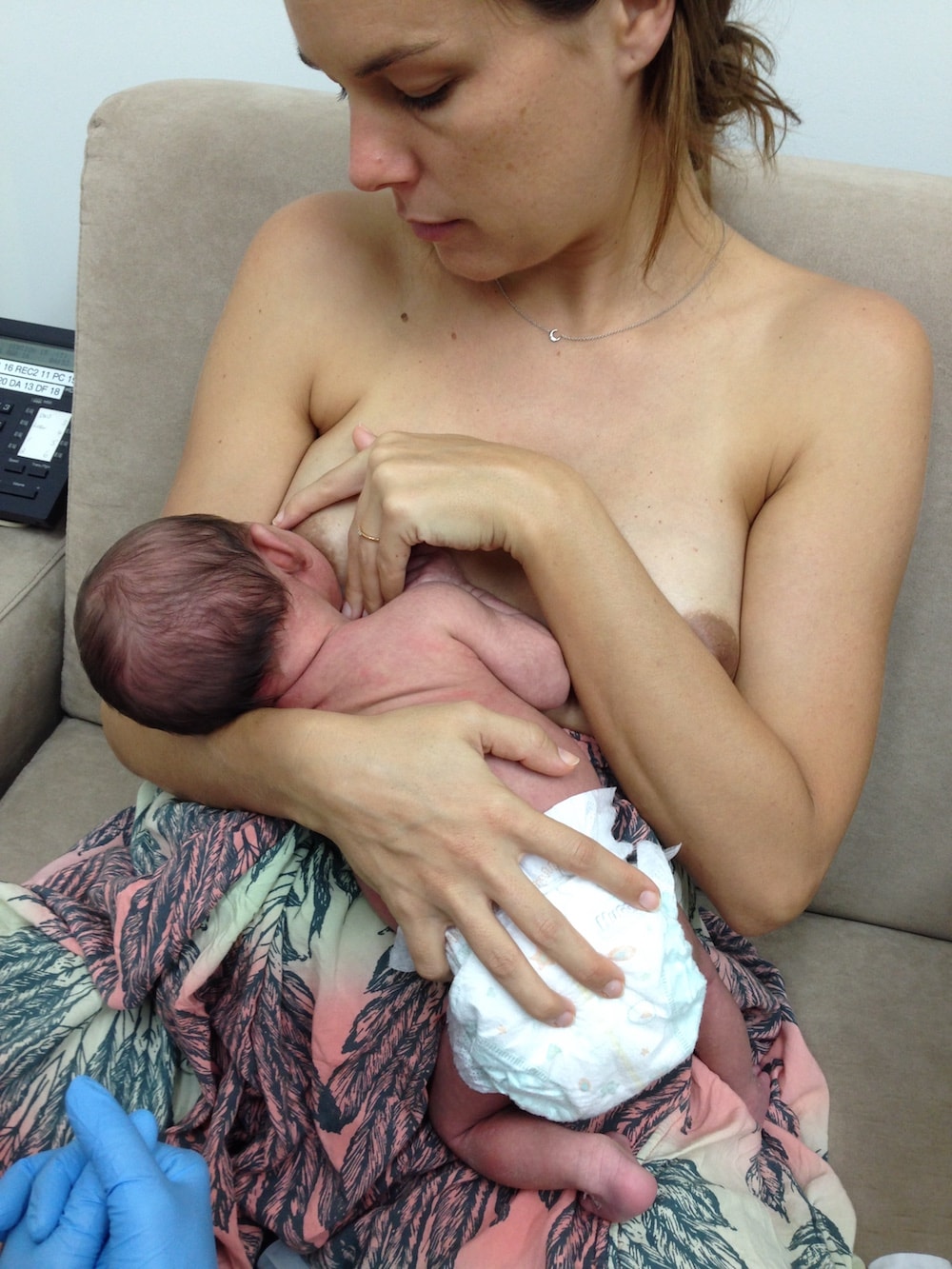In this unflinching account of postnatal depression, Rebecca Walker explains how she felt a failure as a mother. Through time, she finally realised she was the student, and her baby was the teacher

I had high expectations of motherhood. Until I was 35, I’d never been overly maternal and felt somewhat alienated by the “mummy vortex” that I’d watched so many of my friends slip into. I was an ambitious, career-focused, independent woman who worked hard and travelled frequently, so I always felt somewhat detached when I listened to them gush about their offspring and complain of the challenges of parenthood.
After 35, something softened. For the first time in my life I met a man who ignited my desire to be a mother. We consciously conceived and I levitated my way through a dream pregnancy. No mood swings. No fat ankles. No fear of what was to come. Never in my life had I felt so empowered and aligned. So feminine. I was utterly in-tune with my body and baby to the point where I felt psychic.
I practised mindfulness every step of the way during my pregnancy. I prepared myself for everything, except life after birth
I knew what to eat, when to rest, how hard I could push myself. My baby told me everything without speaking a word. I felt like the child growing inside me held the magical key to the deepest sense of peace I’d ever known. Truth be told, my mind isn’t the most peaceful place. I’m a perfectionist, a recovering control freak. Mental health has challenged me since I was a teenager, and I have to work harder than most to keep the garden of my mind free of fear-driven weeds. Which is why pregnancy was such a magical time for me. It was the first and only time in my life that I felt completely at ease.
I became a certified prenatal yoga teacher the week before I fell pregnant, and taught yoga daily in the lead up to giving birth. Through my classes, I consolidated my belief in the power of the female body and its ability to grow and birth a baby. Moreover, I learnt (and taught others) how to calm the mind, control the breath, and positively channel energy through meditation. I practised mindfulness every step of the way during those nine months. In retrospect, I prepared myself for everything except the most important thing: life after birth.

While my son’s birth went to plan (I birthed him drug-free, with no complications or interventions, at home with my husband, midwife and doula), I will never, ever forget the intensity of that experience. The shock of it.
When I look back, I think my shock got in the way of celebration. Don’t get me wrong. I was ecstatic that I had birthed a beautiful, healthy boy (although the boy part was also a shock because I was convinced I was pregnant with a girl for nine months), but I felt like my body was a volcano that had violently erupted. Weeks after the event, I was still psychologically reeling from the experience.
The challenges of post-birth reality began immediately when my baby wouldn’t latch to my breast. A few days of constant trying passed before the midwife realised he had a severe posterior tongue-tie that required laser surgery to correct. So on day five, we headed to a paediatric dentist for the procedure. However, despite her hopeful promise that he would latch afterwards, he didn’t.
The following days and weeks were spent visiting paediatric chiropractors, osteopaths and lactation consultants. I tried everything: nipple shields; hand expressing my milk into a syringe so I could drip feed my baby like a bird; a “supply line” (a contraption that feeds the baby milk through a tube strapped to the breast). I then took to pumping and feeding him my breast milk from the bottle.
In the midst of all this I developed mastitis due to a blocked milk duct. All the while I was starting to downward spiral. I desperately wanted to breastfeed my baby. The view I held was that feeding your child is the most important, basic thing a mother can do (actually, loving them is, but I was too obsessed with my inability to breastfeed to acknowledge that), so I felt like I was already failing motherhood. Failing my son. And as strange as this may sound, it also felt like my baby was rejecting me.
I’m Australian and gave birth in Australia, but I live in Bali. So when my son was eight weeks old, I flew home to begin the really real part: parenthood on an island. I was exhausted and scared. By this point my son was underweight and still wasn’t feeding properly.
Consequently, my milk supply plummeted and I had to take medication to keep my milk flowing. Breastfeeding triggers a powerful hormone called oxytocin. Known as “the love hormone”, oxytocin acts as a neurotransmitter. to the brain and regulates mood. It also cements the mother/infant bond because every time the baby suckles on the breast, oxytocin is released. When you replace a baby’s mouth with a breast pump, the natural hormone boost doesn’t happen.
The bond I had with my son was strong. I loved him fiercely. But feelings of deep deflation, disorientation, inadequacy and fear were starting to surface, which began to skew my perspective. My self-worth was dwindling by the day and it felt like the bright lights of my pregnancy were dimming, leading me into murky territory. In the past I’ve used exercise, meditation, journaling, spiritual rituals and nature (swimming, long walks) to pull me out of my depressive funks. My ultimate medicine though, has always been sleep. But when you’re glued to a baby, these self-care strategies suddenly seem indulgent. I didn’t have time or energy to process or integrate any of it. I simply kept going.

On a practical level, my son was thriving. I began supplementing my breast milk with formula and his weight increased. Eventually I switched to formula feeding when my milk couldn’t keep up with his appetite. The week I stopped breastfeeding, I was slammed with migraines that had me bedridden for a week. A heavy darkness infiltrated my head and heart. I just felt so lost, confused, disillusioned and bewildered.
Like many young babies, my son developed reflux and colic which induced pain and tears at any given hour. Then his teeth started breaking through. When I spoke to other mothers about the challenge of sleep deprivation, they all said the same thing. “Sleep when the baby sleeps!” But my baby was a cat napper. He’d only go down for 20–30 minutes, so I’d never get a solid block of sleep. He was fine with these short nap bursts and woke from them refreshed and happy. I did not.
A large part of my insecurities stemmed from my inability to trust my intuition and instinct. Because I was confident we’d be a telepathic team, I felt baffled by his “language” after he was born. He was still communicating with me (by crying) but I couldn’t decipher the code.
I began second-guessing myself and feeling utterly overwhelmed by the responsibility of keeping another human alive. My feelings of inadequacy morphed into anxiety. I was consumed by a foggy cloud of despair. I felt so horribly guilty that my selfish emotions were getting in the way. I was terrified that he would feel sad by osmosis, and that I was messing him up by being a mess myself.

The more I judged myself for not being a natural mother, the worse I felt. These feelings were compounded by sleep deprivation. From the outside, I seemed fine. I’d wear a smile and if people asked me how I was, I’d downplay my real feelings with a simple: “Tired but good.” I was unable to look people in the eye and say: “I’m drowning.” Everyone kept telling me: “Kids grow up so fast. Make sure you savour every moment!” This made me panic because I felt hugely conflicted. I desperately wanted to relish my son’s infancy and cherish every precious minute, but felt so drained and depleted that I found it hard to wholeheartedly enjoy him. is of course led to more guilt. I also added self-agellation to the list and would beat myself up for feeling bad. I couldn’t see the forest for the trees, and hadn’t yet recognised I had postnatal depression.
My pressure to be superwoman wasn’t helped by social media. Looking at other women’s picture-perfect posts of baby bliss didn’t help my mental health. It just made me feel worse as I waded my way through my feelings of inadequacy. I felt like I was in limbo. No longer the woman I used to be, but not yet the mother I wanted to become.
My husband was incredibly supportive through all of this. Helping with the baby where he could, telling me I was doing a great job, making me nourishing meals, providing for us financially, keeping the morale ship a oat with his steadfast optimism. So eventually I turned to him and told him I needed more help than he could offer.
I needed clinical support.
I jumped on a plane to Australia. I will never forget the moment when I walked through arrivals straight into the arms of my waiting mother. I dissolved into tears as she stood there doing what mums do best: enveloping her child (and grandchild) in supportive, unconditional love. In her presence I could dissolve. I could admit that her fiercely independent daughter really needed help.
If I could offer new, overwhelmed mums some advice it would be this: every stage is just a phase. This too shall pass. Be gentle to yourself
I saw a psychiatrist who helped me make sense of my experience and prescribed antidepressants. I went to a brilliant multidisciplinary clinic that specialised in evidence- based healthcare for mothers and babies. I saw an infant sleep specialist who gave me advice. I met with a “Birth Story Healer” who helped me integrate lingering memories and unresolved emotions. I swam in the ocean. I ate mum’s home cooked meals. I went to the cinema with friends. I slept. I strolled in the sunshine with my son. I spent time at our family farm in the countryside. I was in Australia for a month and by the end of it, a huge, positive shift had occurred.
I look back now and realise I was going though such a common experience: the birth of a mother. I think part of me was afraid that people would judge me and make assumptions. I assumed they would think I didn’t love my son or that I was weak, immature or selfish. I was also ashamed. Ashamed that I was finding motherhood so difficult when other women seemed to be taking it in their stride.
I placed far too much importance on breastfeeding and put way too much pressure on myself. I was so disoriented by my new world, and so focused on loving my son that I forgot to love myself.
I am happy to say the fog lifted when my son was seven months old. I’ve learned a lot and forgiven myself for gracelessly trying my best to be a good mother. When people ask me how motherhood is, I tell them the truth: “It’s humbling.” In the same breath I wholeheartedly tell them my son is my greatest joy. Because it’s true. Motherhood opens my heart wider by the day and the pure, potent, fierce, unconditional, boundless love I feel for my son far outweighs the temporary challenges I experienced after his birth. As the Latin phrase goes, per aspera ad astra (through hardships to the stars).
If I could offer new, overwhelmed mums some advice it would be this: every stage is just a phase. This too shall pass. Be gentle with yourself. Ask for help. Embrace the good days. Practise compassion. Exercise patience. Make peace with your exhaustion. Surrender. Drop all expectations. Trust your intuition. Express, don’t repress, all emotions that arise. Look in your baby’s eyes and know that they chose you. Find a tribe of likeminded mothers to support you through the journey. Above all else, assume the mindset of a student who knows nothing. Walk into your child’s classroom and let them teach you everything you need to know. They will show you the way.
I read this harrowing but beautiful story with tears in my eyes. What better advice can be offered than the conclusions Rebecca gives? Letting go of pre-conceptions and expectations is critical when we face any significant life change. When we stop judging and evaluating, we are free to be in the moment with what arises, and listen to our heart, letting it and the situation guide us towards what we should do.
"




Comments